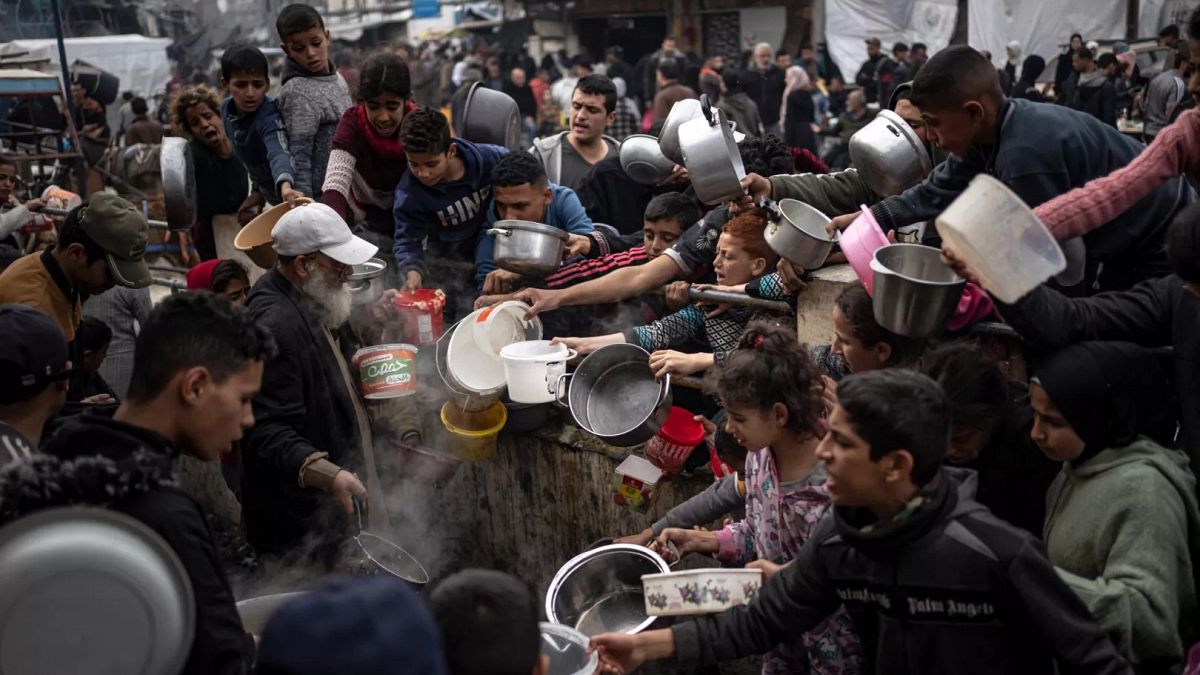

In an unfolding saga of international diplomacy, the recent developments involving multiple nations bring both challenges and rays of hope. In a bid to address ongoing tensions and foster global cooperation, several key events have emerged this week, shedding light on the collaborative efforts aimed at resolving complex international issues. Amidst the constant flow of global news, let’s explore these stories with a mindful approach, focusing on the silver lining that often accompanies such significant international decisions.
In Europe, leaders from France, Germany, and the UK have united in urging Israel to allow more humanitarian aid into Gaza. This joint appeal comes on the heels of French President Emmanuel Macron’s unexpected announcement that France would formally recognize Palestinian statehood. The collective stance of these European nations underscores a shared commitment to alleviating the humanitarian crisis in Gaza, a region that has long been the focal point of international attention. Moving forward, their coordinated efforts are a reminder of the potential for diplomacy to create positive ripples, even in the most challenging of circumstances.
Simultaneously, the focus in Europe also shifts northward as Ursula von der Leyen, the President of the European Commission, prepares for a crucial meeting with US President Donald Trump in Scotland over the weekend. The discussions are set to center around transatlantic trade ties, an area of economic interest that holds significant potential for both regions. Both leaders aim to advance towards an EU-US trade agreement, which Trump described as a “50-50” possibility. This meeting symbolizes the persistent willingness of both the EU and the US to strengthen economic bonds and navigate shared challenges with renewed vigor.
Concurrently, diplomatic channels are buzzing as Iran agrees to resume nuclear negotiations with E3 nations—France, Germany, and the UK—despite no immediate breakthroughs in Istanbul. The talks were held under the looming option of a “snapback” mechanism which could be activated should Tehran fail to cooperate with the International Atomic Energy Agency (IAEA) in reducing its enriched uranium stockpile. These continued discussions reflect a steadfast dedication to dialogue and the peaceful resolution of international concerns, particularly in matters involving global security and nuclear proliferation.
Shifting our focus to Southeast Asia, Cambodia has made an urgent call for an “immediate ceasefire” with Thailand following days of deadly clashes along their shared border. The violence, which has resulted in significant casualties and displacement of people, marks the most severe escalation of hostilities between the two nations in over a decade. Cambodia’s request for a peaceful resolution, voiced through its United Nations ambassador, and Thailand’s openness to dialogue reflect a mutual desire to avoid further conflict and cultivate peace in the region. Both nations, now engaged in earnest discussions, provide a glimpse into how dialogue can potentially restore calm amidst adversities.
Amid all these geopolitical dialogues and efforts for diplomacy, a noteworthy decision came from France’s top judiciary. The French Supreme Court annulled an arrest warrant for former Syrian leader Bashar al-Assad, declaring it invalid under international law, which grants heads of state immunity while in office. This decision, although rooted in legal terms, underpins the complex intertwining of law and international politics, reminding us of the importance of legal frameworks in managing global affairs diplomatically.
As these varied events unfold across different continents, they serve as a testament to the intricate web of international relations and the importance of diplomacy in addressing global issues. Despite the challenges and conflicts, there remains a glimmer of hope that resonates through each diplomatic handshake, every call for peaceful resolutions, and each commitment to dialogue. Let us continue to observe these developments with a sense of calm and hope for a future where such efforts lead to lasting peace and cooperation worldwide. Engaging with these stories mindfully allows us to appreciate the broader context of global diplomacy, reinforcing our understanding of its essential role in creating a harmonious and interconnected world.
Source: {link}
